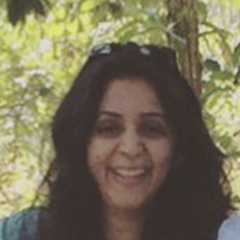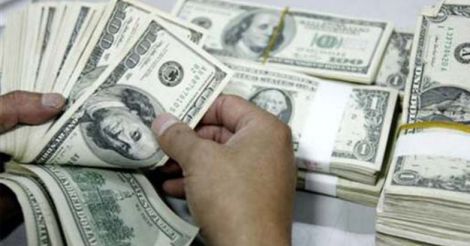Eight men own the same wealth as the 3.6 billion people who make up the poorest half of humanity, according to a recent report published by Oxfam to mark the annual meeting of political and business leaders in Davos, Switzerland.
8x = 3.6 billion y is a mathematical and ethical statement that boggles the mind with the values of x and y being obscenely distant from each other on any scale of measurement.
In previous years, the figures were 49 x = 3.6 billion y, that is 49 of the world’s richest owned the same wealth as 3.6 billion of the world’s poorest. That 49 has dropped to eight so rapidly shows that economic inequality in the world is rising sharply, the rich are getting richer faster, while the poor remain mired in debt and poverty.

By the same author: Be the change… a new wave of social activism is sweeping Kerala
An inconvenient but undeniable truth
'When the well is dry, we learn the value of water'
Transform our cities, reclaim the outdoors for urban dwellers
Globalization—that great buzzword of the 20th century—and its beloved offspring, conspicuous consumption, seem to have benefited the rich while bypassing the poor; but like a kid with his nose pressed to the window of a candy store, the marginalized can see clearly what they’re missing out on. Little wonder then that a people's revolution is brewing—one that sidelines politicians who are seen to be hand in glove with the wealthy while mouthing platitudes about improving the lives of the common man. Brexit, Donald Trump, the rise of the xenophobic far-right in Europe and other places are all signs (not solutions, by any means) of this seething discontent among the masses who feel overlooked and forgotten while their leaders formulate policies, which tilt the balance in favor of the haves.
In India, the demonetization adventure is another brick in this wall of ill-advised economic practices. A meme featuring a Marie Antoinette-like Indian figure with the words "if they don't have paper, let them use plastic", a play on the famous line "if they don't have bread, let them eat cake”, which supposedly led to the French Revolution, captures the situation perfectly.
While the goal of putting an end to the parallel black money economy is a laudable one, the reality is that the big fish continue to escape the net with their connections and access to sophisticated financial manipulations while the already heavily burdened daily income earners, farmers and rural populations with no access to the digital world bear the brunt of demonetization. The drive to become a cashless economy in a country where the vast majority lacks access to regular uninterrupted power supply, much less to internet connectivity and banking facilities, is an example of how the poor and their realities are all too often overlooked by those in power and those close to the seats of power. The flawed thought that whatever benefits the rich will eventually trickle down to the poor continues to be the guiding principle of modern societies and governments. A blinkered view, if ever there was one!
But surely the truth is hiding in plain sight. Millions of people and our planet are suffering due to the greed and consumption pattern of the relative few. Instead of looking at the issues of climate change, poverty, disease, hunger, war, insurgency and migration piecemeal, should we not be seeing them as offshoots of the same root problem—an inequitable distribution and consumption of common resources.
This then brings us to some fundamental questions that all affluent societies should ask themselves: just because we can afford it, should we consume indiscriminately? Do we have a right to have more than our fair share simply because we are in a position to grab it? In this world of finite resources, don't we have a responsibility to the larger community and to our planet: a responsibility to share more, to consume less, to live in a more equitable and sustainable manner?
The answer is clearly blowing in the wind.
(Shalini Anna Dominic is a writer based in Kochi. The views are personal.)

























 Representational image
Representational image